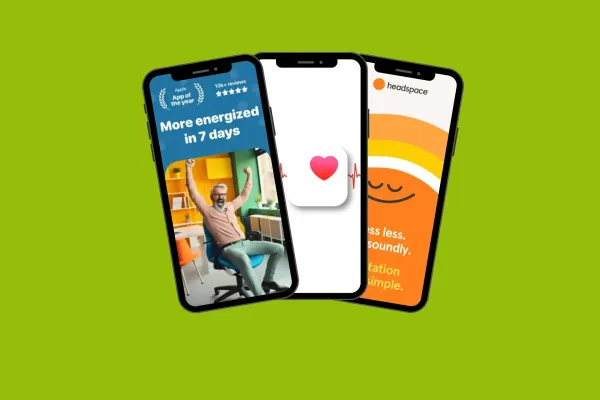Listen to this article
At present, it seems as though most of us are well-educated on the matter of stress. We know it robs us of our health, productivity, and feeling of well-being. Once it kicks in, we can easily tell it's not hunger that's causing the bellyache...
Oh, and we have some hands-on experience as well! Like, our stomach is turning inside out nearly every day. And the rate of “my god” chants we voice out per minute - could as well be a rhythm section for a jazz band.
However, the moment we need to deal with stress at work - systematically and successfully - most of us are still pretty amateurish. It's because sometimes we fail to understand two things about stress at work.
It’s individual
Not all of us are wired to endure the same amount of workload and pressure. In fact, we're all handed different stress tolerance levels, coping styles, and well…boss.
Dealing with stress demands conscious effort
Crying, playing games, eating cake, staying inside - although great on occasions - all lack conscious effort. This is not a way to deal with stress. It’s just a way to delay or worse, intensify problems.
If you’re looking to make an effort to turn stress into challenges, here are 5 tips to help you get there.
#1 Minimize your biggest stressors

Chances are many work-related stressors are shoving you toward the edge. And chances are one or two are pushing the hardest. Think of it like an 80/20 rule but not in a productive fashion… 20% of your stressors create most issues.
In the sea of many stressors, let’s net out the most common ones.
- Job or position uncertainty
- Unrealistic expectations and pressure
- Heavy workload and overtime
- Shortage of information and resources
- Personal time management
- Peer pressure or mobbing
- Great job complexity
Now, the key to doing this right is to be real with yourself. Reflect back on your workday. Pinpoint one or two issues prevalent in moments when you’re losing it. If your boss serves you “by tomorrow” affirmations as a remedy for stress - there’s your 20% (and a jerk).
Also, avoid misjudging one stressor for another. We tend to do this when we’re playing a stress-induced blame game. Maybe peer pressure isn’t the stressor but feedback. Managing your time poorly or overextending yourself could be the reason your colleagues are giving you a hard time.
Once you identify the biggest stressors, take action. Think of the ways you can minimize their impact. Here are a few ideas to nudge you to do your own little research!
- 💌 Uncertainty: Ask for realistic feedback
- ✈️ Pressure: Go remote! Fly away!
- 📜 Overtime: Refer to the Fair Labor Standards Act
- ⚠️ Resources: Stop blaming yourself
- 🕘 Time: Sign up for a time management course
- 🙋🏻 Peers: Let the biggest pressure-maker know how it makes you feel
- ☝️🏻 Complexity: Ask for more manageable assignments
#2 Underpromise and overdeliver
You know that dopamine firework you feel when you deliver your work. There is no feeling like that, truly. It’s something else when effort and accomplishment come along.
In contrast, there is nothing as rotten as the internal rust you feel for constantly failing - your work, promises, pinky swears, and yourself. The vicious cycle most people are still childishly trying to escape by extending themselves even more. Let us tell you - fuel won’t put down the fire!
To avoid this hurtful decay you should stop over-committing. Maybe it worked in the past. Maybe it even got you a job you always wanted. But what got you here won’t get you there.
It’s time you de-stress using this disrespectfully simple trick. Instead of biting the bullet, for your next project, de-load your burden. Set the bar low and cut down on your promises. Remember, there is no feeling quite like that of achievement. Setting the bar lower allows you to win some, win more, and build yourself up to a positive feedback loop.
#3 When you’re not strong, lean on others

Yes, Bill Withers was right all along. When you have pain and sorrow, you need somebody to lean on. Nowadays more than ever.
Stress at work can make us feel isolated. And burnout, it's isolated times 10. And that feeling couldn’t reside further away from the truth. According to Northwestern National Life, every fourth employee in the USA views their job as a main cause of stress in life. So it’s not only most of us who feel the work tension, one in four of our colleagues is seriously struggling with it.
Therefore, have a little chat with your colleagues. See whether they have any sound advice to share. Even better, talk to your manager or HR representative. You’ll be surprised to find out that others are dealing with stress at work as well.
Most importantly, don’t forget to reciprocate - be a supportive system, not just part of one. Both parties - the one giving advice and the one taking it - will probably both end up feeling a whole lot better.
#4 Plan your work (and your breaks)
It will help you stay productive and preserve strong work satisfaction.
In this cross-sectional study conducted across four different workplaces, researchers found out higher stress scores were mostly linked with significantly lower productivity. And this correlation is not just one-sided - it is a loop you want to stay away from. When you’re stressed, productivity goes down and - the same way around - when you’re unproductive the stress always seems to pile up. At one point, you’re no longer able to tell the head from the tail.
To counter this issue, you need to plan ahead. Jot down everything you need to do and plan before each day. Short cycles will allow you to keep it doable and should reinforce the feeling of accomplishment.
Oh, something else before you go… You’re not a Perpetuum mobile - you can’t push the pace forever. To stop stress from building up, plan your short daily breaks or desk exercises as well and stick to them religiously. They will help you stay mentally sharp and level-headed. Even better, take short physical activity breaks - they are proven to bring amazing benefits.
#5 Salad, not Snickers, nuts, not jellies

Oh god, no! It won't look anything like this. Broccoli will be better cooked, pinky swear! 😂
Now, the last point... You mostly struggle with healthy snacks at work, not with your lunch, right? When the stress squeezes your fanny, you need something to chew on casually, don’t you?
You mostly struggle with healthy snacks at work, not with your lunch. When the stress squeezes your fanny, you need something to chew on casually, don’t you? Another assumption - you need ideas instead of someone telling you to eat healthily. So here it goes.
- Dried fruit (not gummies)
- Nuts and almonds (toss popcorn)
- Fruit mix (forget ice cream)
- Dark chocolate (instead of just chocolate)
- Fruit and yogurt (not fruit yogurt)
- Veggie chips (ditch salty chips)
- Energy balls (not choco balls)
- Spiced cashews (skip pretzels)
- Clementine and almonds (ew donuts)
There is more, a lot more. And the good news is you can start here and explore 8 healthy snacks to add to your daily repertoire! Feel free to take a glance.

Wakeout










